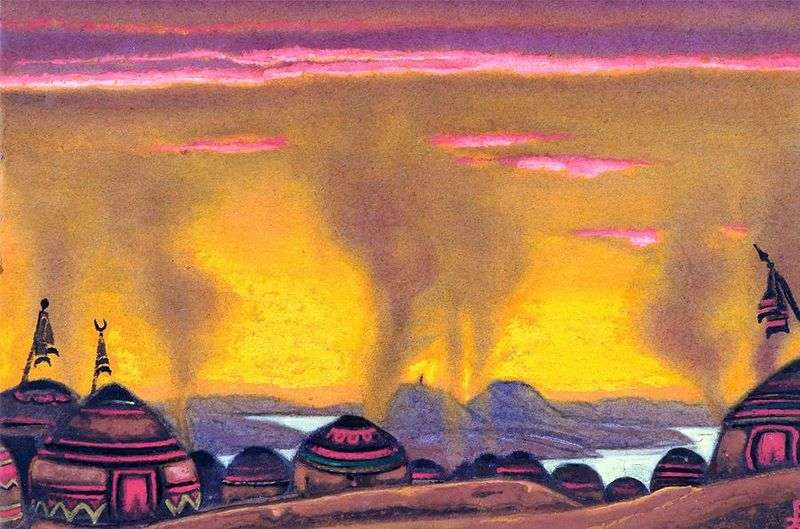
In 1909, at the invitation of Dyagilev, Roerich took part in the Russian seasons in Paris. He happened to show his own scenery on stage to only one act of the opera Prince Igor of Borodin – the painting The Polovtsy Camp.
Excellent sketches remained unfulfilled: “Putivl”, “Galitsky Yard”, “Terem Yaroslavna”, “Lament Yaroslavna”. Even those who did not see the light of the ramp, they became the property of the history of Russian theatrical-decorative art, entered its treasury and were subsequently creatively perceived by the artists of the Soviet theater.
“Polovtsy camp” Roerich is considered to be a masterpiece of stage painting. In the scenery for the first time, harmony was achieved in the literary, musical, choreographic foundations of the opera and its scenographic form. The plastic expression of the opera was close to him in spirit and presented in the monumental prototypes of ancient Russian architecture.
In his manner and at the same time, the artist “Polovtsy camp” creates a nomadic camp in the pristine world of hills, mounds, desert distances and a huge sky that occupies most of the scenic space. There was no theatrical scenery in the conventional sense – no wings, no typical subjects.
Instead of the usual tents, tent kits appeared brown-reddish with a greenish tint, decorated with a primitive ornament and arranged arbitrarily rather than symmetrically, as was customary at that time. Their rounded uneven silhouettes are visible entirely in the volumetric buildings of the first plan, then on a picturesque backdrop, partially hidden by the unevenness of the soil.
The yellow-red-green-golden sky melted by sun-sunset and green-ocher with brown-red kibitkas make up a single range composed of 84 gray-pink fumes, reflections of the sunset glow burning on kibits, grasses and mounds. Greenish stripes of grass cover, reddish rust of tents and hot gold of the sky are divided by the cold blue of the river bends and the bluish-gray wavy edge of the banks on the horizon. Interspersed coloristic “ice” even more emphasizes the atmosphere of heat.
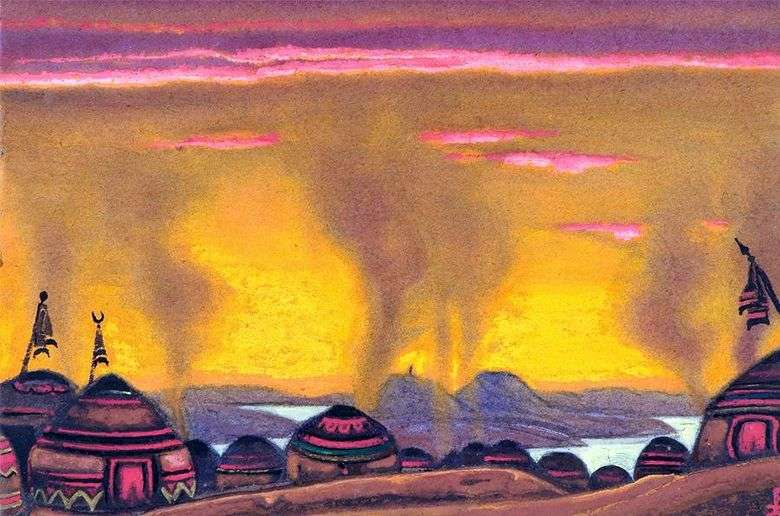 Campamento de Polovtsy – Nicholas Roerich
Campamento de Polovtsy – Nicholas Roerich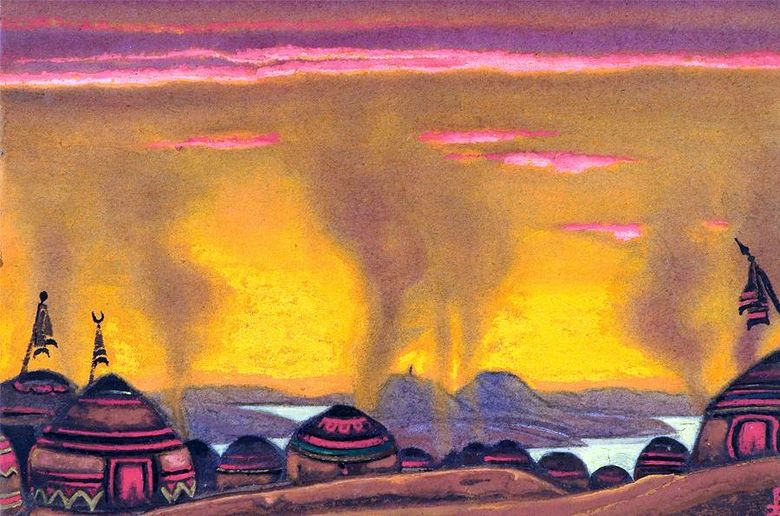 Camp polovtsien – Nicholas Roerich
Camp polovtsien – Nicholas Roerich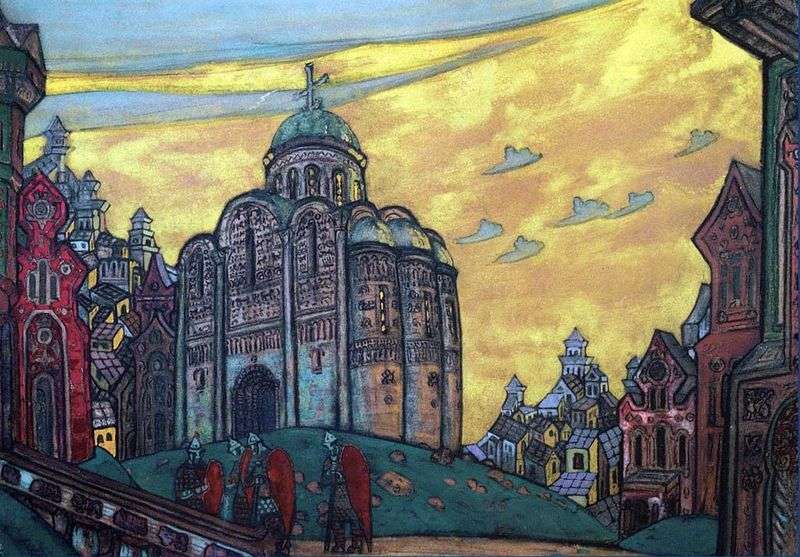 Putivl by Nicholas Roerich
Putivl by Nicholas Roerich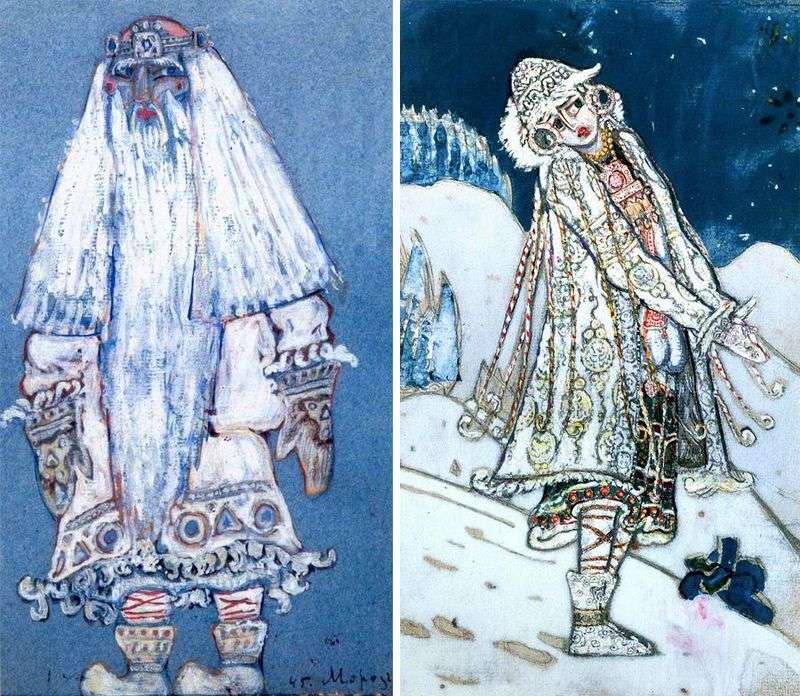 Snow Maiden by Nicholas Roerich
Snow Maiden by Nicholas Roerich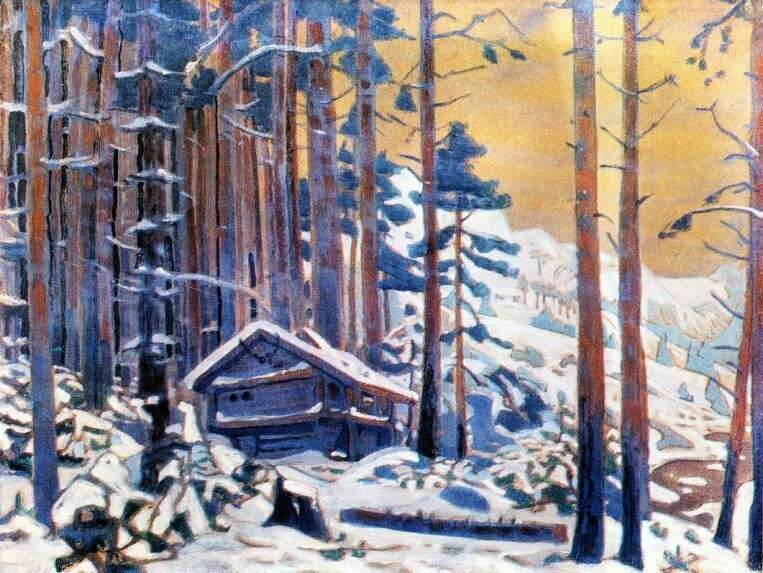 Peer Gynt by Nicholas Roerich
Peer Gynt by Nicholas Roerich Angel last by Nicholas Roerich
Angel last by Nicholas Roerich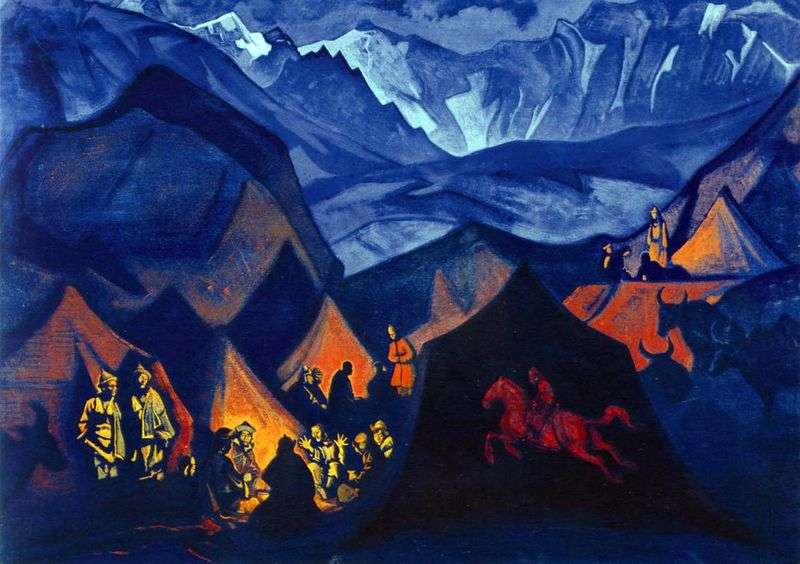 Whispers of the Desert by Nicholas Roerich
Whispers of the Desert by Nicholas Roerich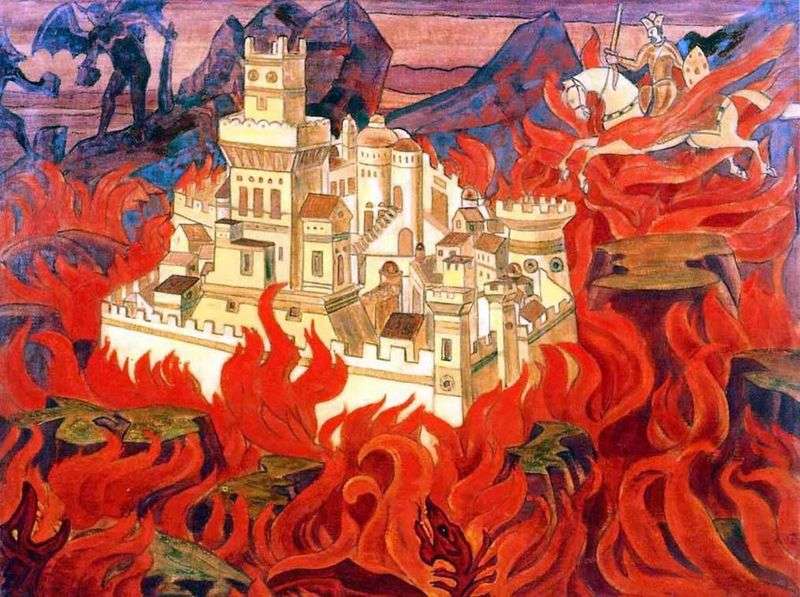 Purest Hail by Angers to Enemies – Nicholas Roerich
Purest Hail by Angers to Enemies – Nicholas Roerich